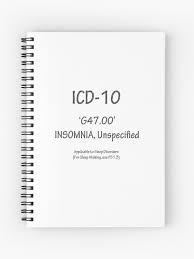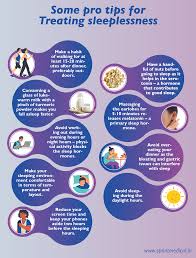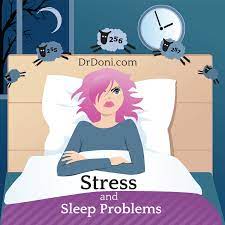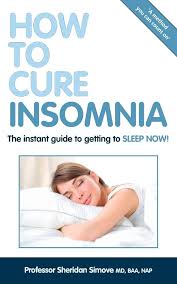Understanding Insomnia ICD-10: Diagnosis and Treatment
Insomnia is a common sleep disorder that affects millions of people worldwide. In the medical field, insomnia is classified and diagnosed using the International Classification of Diseases, Tenth Revision (ICD-10) coding system. This system provides a standardized way to categorize and code various health conditions, including insomnia.
ICD-10 Code for Insomnia
In the ICD-10 coding system, insomnia is classified under code G47.00. This code specifically refers to “insomnia disorder,” which is characterized by difficulty falling asleep, staying asleep, or experiencing non-restorative sleep despite having the opportunity to sleep.
Diagnosing Insomnia Using ICD-10
To diagnose insomnia using the ICD-10 coding system, healthcare providers consider the specific criteria outlined for insomnia disorder. These criteria typically include:
- Difficulty initiating or maintaining sleep
- Sleep disturbances causing significant distress or impairment in daily functioning
- Sleep difficulties occurring at least three nights per week for a minimum duration of three months
- Sleep disturbances not attributed to another medical or psychiatric condition
Treatment Options for Insomnia
Once diagnosed with insomnia using the ICD-10 code G47.00, individuals can explore various treatment options to improve their sleep quality. Common treatment approaches for insomnia may include:
- Cognitive-behavioral therapy for insomnia (CBT-I)
- Sleep hygiene practices such as maintaining a regular sleep schedule and creating a relaxing bedtime routine
- Medications prescribed by healthcare providers to help regulate sleep patterns
- Addressing underlying medical or mental health conditions that may contribute to insomnia symptoms
Conclusion
Understanding the ICD-10 classification for insomnia can help healthcare providers accurately diagnose and treat individuals experiencing sleep difficulties. By following established diagnostic criteria and exploring appropriate treatment options, individuals with insomnia can work towards improving their sleep quality and overall well-being.
Understanding ICD-10 Codes and Criteria for Insomnia: Frequently Asked Questions
- What is the ICD-10 code for G47 3?
- What is the ICD-10 code for F51 01?
- What is the ICD-10 code for insomnia?
- What is the criteria for F51 01?
- What is non organic insomnia ICD-10?
What is the ICD-10 code for G47 3?
The ICD-10 code G47.3 corresponds to “circadian rhythm sleep-wake disorders.” This code is used to classify and diagnose conditions where an individual’s sleep pattern is significantly misaligned with the typical 24-hour sleep-wake cycle. Circadian rhythm sleep-wake disorders can manifest as difficulties falling asleep at the desired time, excessive daytime sleepiness, or irregular sleep-wake patterns. Healthcare providers utilize this specific ICD-10 code to accurately identify and address circadian rhythm disturbances in patients experiencing disruptions in their sleep-wake cycle.
What is the ICD-10 code for F51 01?
The ICD-10 code for F51.01 corresponds to a specific type of insomnia known as “psychophysiologic insomnia.” This condition is characterized by a combination of psychological factors, such as stress or anxiety, and physiological factors that contribute to difficulties in falling asleep or staying asleep. By using the ICD-10 coding system, healthcare providers can accurately classify and document cases of psychophysiologic insomnia, leading to appropriate diagnosis and treatment strategies tailored to address both the psychological and physiological aspects of this sleep disorder.
What is the ICD-10 code for insomnia?
The ICD-10 code for insomnia is G47.00. Insomnia, characterized by difficulty falling asleep, staying asleep, or experiencing non-restorative sleep despite the opportunity to do so, is classified under this specific code in the International Classification of Diseases, Tenth Revision (ICD-10) system. Healthcare providers use this standardized coding system to accurately diagnose and categorize various health conditions, including insomnia. By recognizing and utilizing the ICD-10 code G47.00 for insomnia, healthcare professionals can effectively document and address sleep disturbances in individuals seeking treatment for their sleep difficulties.
What is the criteria for F51 01?
The criteria for F51.01, as outlined in the ICD-10 coding system, pertain to nonorganic insomnia. This classification refers to sleep disturbances that are not caused by underlying medical or psychiatric conditions. To meet the criteria for F51.01, individuals must experience difficulty falling asleep, staying asleep, or achieving restorative sleep on a regular basis. These sleep disturbances should not be attributed to factors such as medication side effects, substance abuse, or other identifiable causes. Healthcare providers use these specific criteria to accurately diagnose and classify cases of nonorganic insomnia under the F51.01 code within the ICD-10 system.
What is non organic insomnia ICD-10?
Non-organic insomnia in ICD-10 refers to sleep disturbances that are not caused by underlying medical or psychiatric conditions. This type of insomnia is often considered primary insomnia, where the sleep difficulties are not secondary to another health issue. Non-organic insomnia is characterized by difficulties falling asleep, staying asleep, or experiencing restorative sleep without a clear medical explanation. Diagnosis and treatment of non-organic insomnia focus on addressing behavioral and environmental factors that may contribute to the sleep disturbances, such as poor sleep hygiene or stress. By understanding the distinction between organic and non-organic insomnia in the ICD-10 classification, healthcare providers can tailor interventions to help individuals improve their sleep quality and overall well-being.




